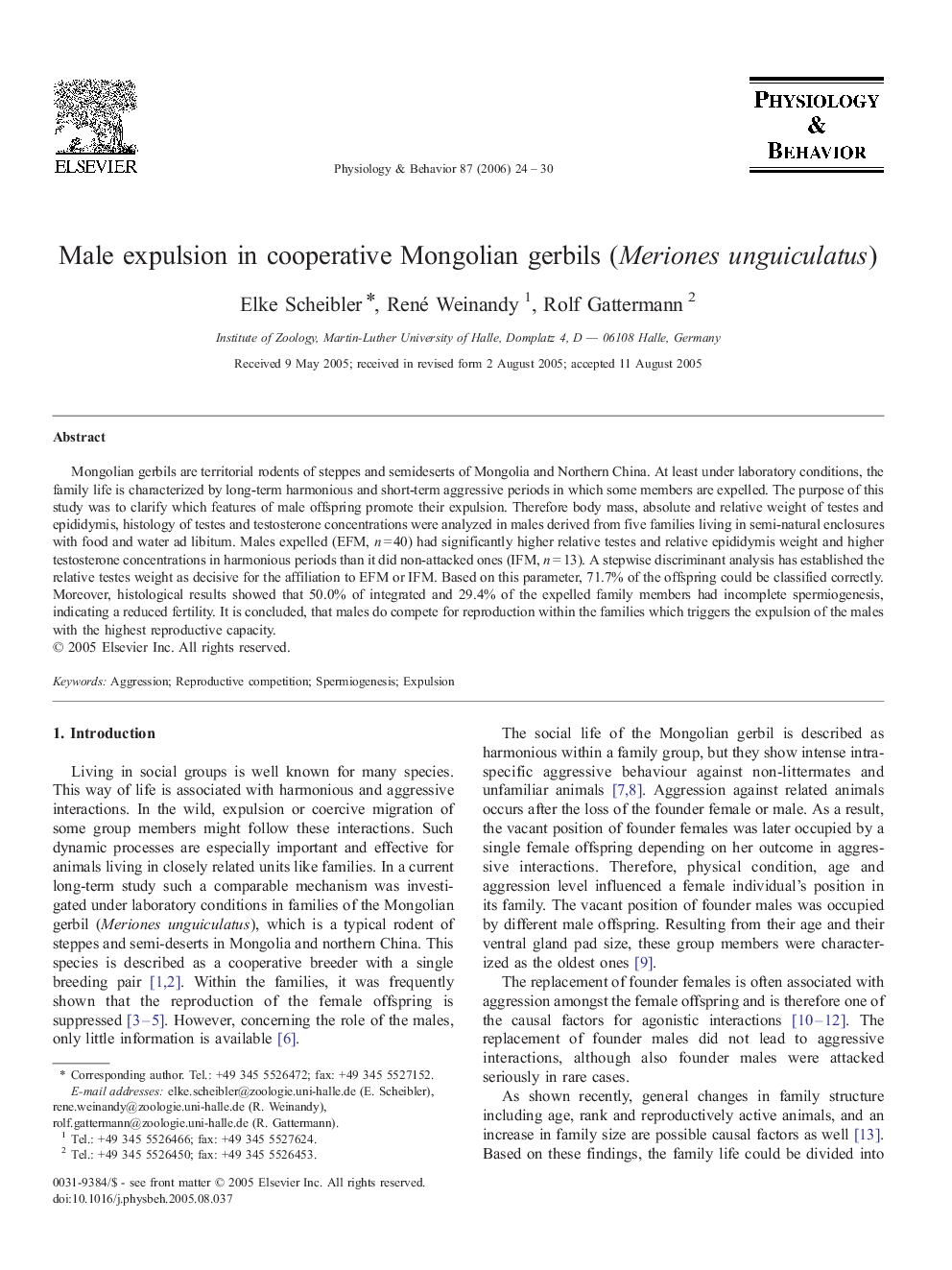| Article ID | Journal | Published Year | Pages | File Type |
|---|---|---|---|---|
| 2846475 | Physiology & Behavior | 2006 | 7 Pages |
Abstract
Mongolian gerbils are territorial rodents of steppes and semideserts of Mongolia and Northern China. At least under laboratory conditions, the family life is characterized by long-term harmonious and short-term aggressive periods in which some members are expelled. The purpose of this study was to clarify which features of male offspring promote their expulsion. Therefore body mass, absolute and relative weight of testes and epididymis, histology of testes and testosterone concentrations were analyzed in males derived from five families living in semi-natural enclosures with food and water ad libitum. Males expelled (EFM, n = 40) had significantly higher relative testes and relative epididymis weight and higher testosterone concentrations in harmonious periods than it did non-attacked ones (IFM, n = 13). A stepwise discriminant analysis has established the relative testes weight as decisive for the affiliation to EFM or IFM. Based on this parameter, 71.7% of the offspring could be classified correctly. Moreover, histological results showed that 50.0% of integrated and 29.4% of the expelled family members had incomplete spermiogenesis, indicating a reduced fertility. It is concluded, that males do compete for reproduction within the families which triggers the expulsion of the males with the highest reproductive capacity.
Keywords
Related Topics
Life Sciences
Biochemistry, Genetics and Molecular Biology
Physiology
Authors
Elke Scheibler, René Weinandy, Rolf Gattermann,
